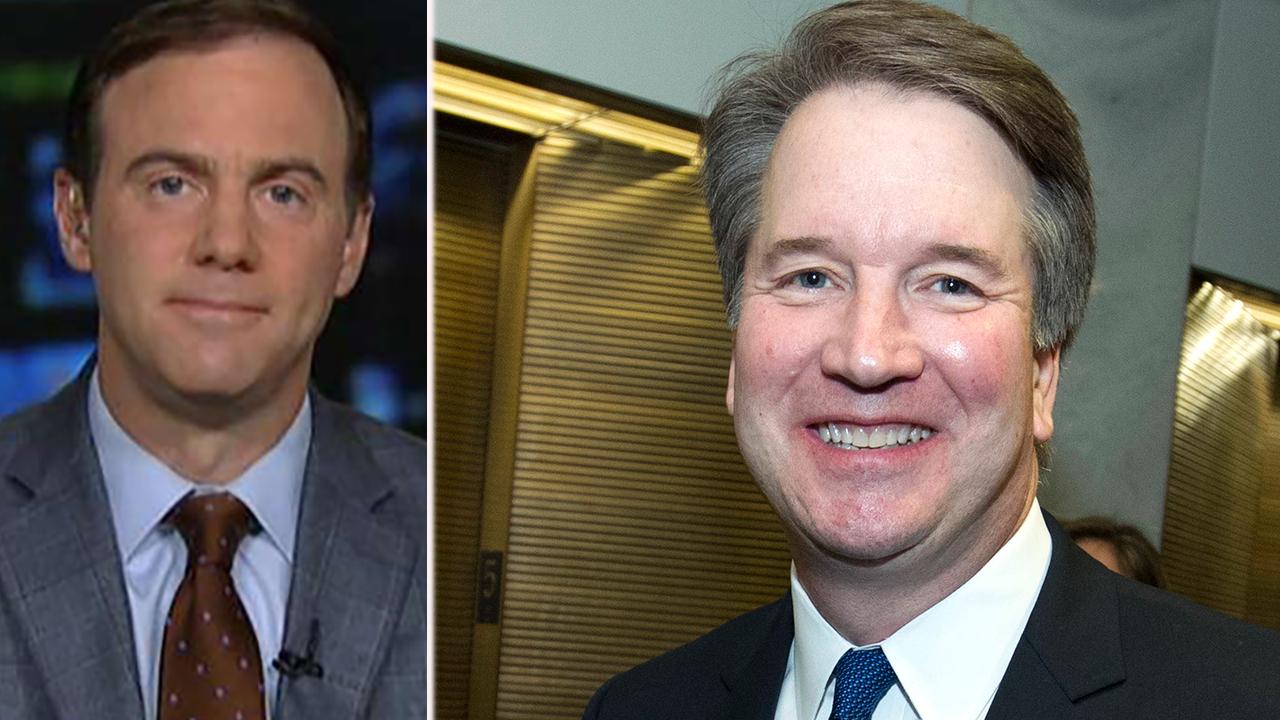Democrats ‘playing to their base’ with calls for Kavanaugh postponement
Partisan bickering and efforts by Democratic lawmakers to delay a vote a confirmation hearing for President Trump’s Supreme Court nominee Brett Kavanaugh would likely come as no surprise Justice Antonin Scalia, who died nearly two years ago, according to his son.
“He saw this coming, you know, a long time ago,” Chris Scalia said on Saturday during an interview with FOX Business’ Neil Cavuto.
Confirmation hearings are set to begin after Labor Day, but citing new developments in special counsel Robert Mueller’s Russia investigation, some Democrats are seeking a postponement.
The president’s former campaign chairman Paul Manafort was found guilty on eight counts of financial crimes, including tax fraud, this week. His former personal attorney Michael Cohen also pleaded guilty to making illegal campaign contributions and said he’d been directed to do so by Trump.
While sitting on the Supreme Court, Antonin Scalia saw President Ronald Reagan’s nominee Robert Bork get rejected by a then-Democratic Senate majority, as well as a bitter fight by Republicans to approve President George H. W. Bush’s nominee, Justice Clarence Thomas, who had been accused of sexually harassing attorney Anita Hill.
“My father argued that confirmation battles were that heated in large part because judges had become more and more like legislators, and that's something my father was not very fond of,’ Chris Scalia said. “So, you know, as long as judges were usurping the role of representatives elected by the people, the elected representatives would treat confirmation hearings like many elections. And I think we're seeing that.”
But Scalia said Democrats had little substance to back up their latest argument because they tried to use a similar argument to stop Trump’s previous Supreme Court nominee, Neil Gorsuch.
Prior to the Gorsuch’s confirmation, Senate Majority Leader Mitch McConnell, R-Ky., changed Senate rules in order to allow Supreme Court nominees to be confirmed by a simple majority, meaning Republicans no longer needed to have a 60-vote threshold. Democrats are the minority in the Senate, at 51-49.
“They do it so often, they keep going back to this well,” Scalia said. “I don't think that many people outside of their base take them terribly seriously, but, of course, they're just playing to their base here.”




















